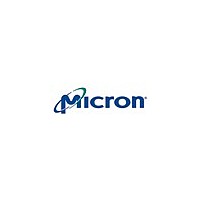MT48LC4M16A2TG-7E:G Micron Technology Inc, MT48LC4M16A2TG-7E:G Datasheet - Page 21

MT48LC4M16A2TG-7E:G
Manufacturer Part Number
MT48LC4M16A2TG-7E:G
Description
DRAM Chip SDRAM 64M-Bit 4Mx16 3.3V 54-Pin TSOP-II Tray
Manufacturer
Micron Technology Inc
Type
SDRAMr
Datasheet
1.MT48LC4M16A2TG-7EG.pdf
(72 pages)
Specifications of MT48LC4M16A2TG-7E:G
Density
64 Mb
Maximum Clock Rate
143 MHz
Package
54TSOP-II
Address Bus Width
14 Bit
Operating Supply Voltage
3.3 V
Maximum Random Access Time
5.4 ns
Operating Temperature
0 to 70 °C
Organization
4Mx16
Address Bus
14b
Access Time (max)
5.4ns
Operating Supply Voltage (typ)
3.3V
Package Type
TSOP-II
Operating Temp Range
0C to 70C
Operating Supply Voltage (max)
3.6V
Operating Supply Voltage (min)
3V
Supply Current
150mA
Pin Count
54
Mounting
Surface Mount
Operating Temperature Classification
Commercial
Lead Free Status / RoHS Status
Not Compliant
Available stocks
Company
Part Number
Manufacturer
Quantity
Price
Part Number:
MT48LC4M16A2TG-7E:G
Manufacturer:
MICRON/美光
Quantity:
20 000
Operation
Bank/Row Activation
PDF: 09005aef80725c0b/Source: 09005aef806fc13c
64MSDRAM_2.fm - Rev. N 12/08 EN
The procedure for exiting self refresh requires a sequence of commands. First, CLK must
be stable (stable clock is defined as a signal cycling within timing constraints specified
for the clock pin) prior to CKE going back HIGH. After CKE is HIGH, the SDRAM must
have NOP commands issued (a minimum of two clocks) for
required for the completion of any internal refresh in progress.
Upon exiting the self refresh mode, AUTO REFRESH commands must be issued every
15.625µs or less, as both SELF REFRESH and AUTO REFRESH utilize the row refresh
counter.
Self refresh is not supported on automotive temperature devices.
Before any READ or WRITE commands can be issued to a bank within the SDRAM, a row
in that bank must be “opened.” This is accomplished via the ACTIVE command, which
selects both the bank and the row to be activated (see Figure 8).
After opening a row (issuing an ACTIVE command), a READ or WRITE command may be
issued to that row, subject to the
the clock period and rounded up to the next whole number to determine the earliest
clock edge after the ACTIVE command on which a READ or WRITE command can be
entered. For example, a
results in 2.5 clocks, rounded to 3. This is reflected in Figure 9 on page 22, which covers
any case where 2 <
specification limits from time units to clock cycles).
A subsequent ACTIVE command to a different row in the same bank can only be issued
after the previous active row has been “closed” (precharged). The minimum time
interval between successive ACTIVE commands to the same bank is defined by
A subsequent ACTIVE command to another bank can be issued while the first bank is
being accessed, which results in a reduction of total row-access overhead. The minimum
time interval between successive ACTIVE commands to different banks is defined by
t
RRD.
t
RCD (MIN)/
t
RCD specification of 20ns with a 125 MHz clock (8ns period)
21
t
t
CK ≤ 3. (The same procedure is used to convert other
RCD specification.
Micron Technology, Inc., reserves the right to change products or specifications without notice.
t
RCD (MIN) should be divided by
64Mb: x4, x8, x16 SDRAM
t
XSR, because time is
©2000 Micron Technology, Inc. All rights reserved.
Commands
t
RC.

















